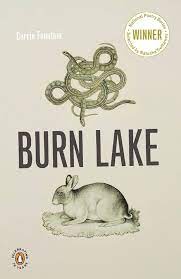
Political. It’s a big-tent word, all right. And these days most folks focus on the “big” as in bigmouths that crowd the field we should call “government” but instead call “politics” because there’s more politics than government going on by far.
You can write a political poem about this bigness, sure. But it’s a tricky business that walks a thin line between proselytizing in poetry’s chapter and verse and art-for-art’s-waking with a bit of mind-shifting meaning. Me, I prefer the “small politics” strategy, wherein you write about an everyday topic that takes a stand and demands a soap box. One that does not fit into the narrative being writ large on Washington D.C.’s gluttonous stage.
Materialism, for instance. Or raising children. Political acts? In their way, yes. And what better vehicle than poetry to prove the point? Today’s poem is from one of my favorite poets, Naomi Shihab Nye–her name itself a poem. It’s called “Rebellion Against the North Side” and, like any rebellion, can be considered a “shot heard ’round the world” to its readers.
Rebellion against the North Side
by Naomi Shihab Nye
There will be no monograms on our skulls.
You who are training your daughters to check for the words
“Calvin Klein” before they look to see if there are pockets
are giving them no hands to put in those pockets.
You are giving them eyes that will find nothing solid in stones.
No comfort in rough land, nameless sheep trails.
No answers from things which do not speak.
Since when do children sketch dreams with price tags attached?
Don’t tell me they were born this way.
We were all born like empty fields.
What we are now shows what has been planted.
Will you remind them there were people
who hemmed their days with thick-spun wool
and wore them till they fell apart?
Think of darkness hugging the houses,
caring nothing for the material of our pajamas.
Think of the delicate mesh of neckbones
when you clasp the golden chains.
These words the world rains back and forth
are temporary as clouds.
Clouds? Tell your children to look up.
The sky is the only store worth shopping in
for anything as long as life.
I don’t know about you, but I smell poetry in the lines “We were all born like empty fields / What we are now shows what has been planted.” Also: “The sky is the only store worth shopping in / for anything as long as life.”
Only a poetic politician could pound her fist on the lectern and say, “The mall? It’s in the sky right above your noses! Look up! Look up!”
Does it preach a bit, like every political poem, to the choir? Yes. But “small-ly,” to coin a word from you-know-who’s “bigly” life. And if it convinces only the already-convinced (read: parents) more than any can’t-be-convinced teens, so be it. The point is that small political poems can be bigger than any two-party, power-grabbing, ego-massaging big ones. Easier to write and read, too.


